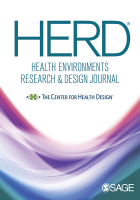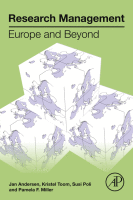The Library has added a new journal title to the collection, Health Environments Research & Design (HERD) . HERD features evidence-based, interdisciplinary research on “relationships among health and environmental design and organizational, provider, and patient outcomes.”
. HERD features evidence-based, interdisciplinary research on “relationships among health and environmental design and organizational, provider, and patient outcomes.”
Major topics in this journal include healthcare innovations and design, industry challenges that affect patient outcomes, and enhancement of working conditions for healthcare professionals.

 to communicate the multidisciplinary nature of research collaboration.
to communicate the multidisciplinary nature of research collaboration.